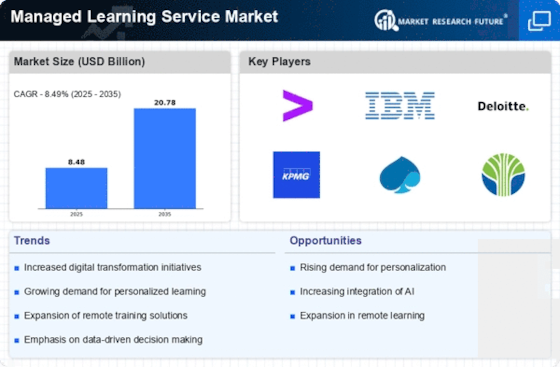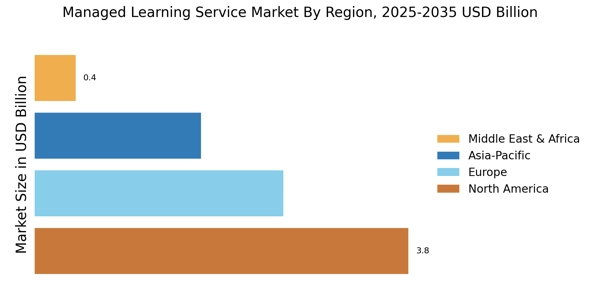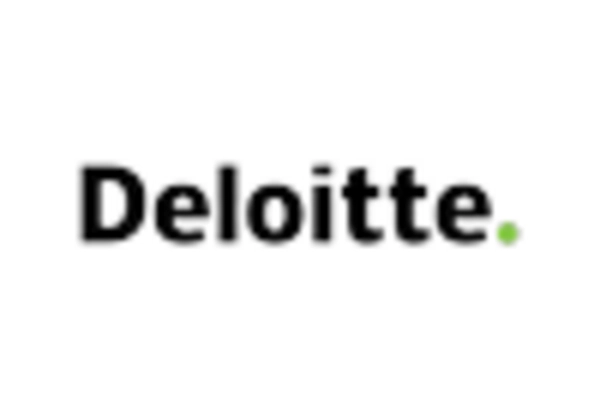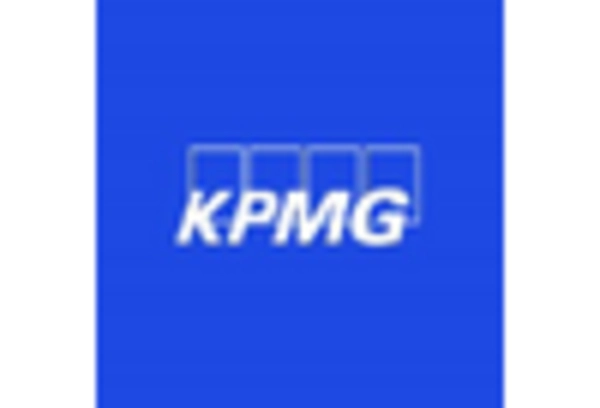Rise of E-Learning Platforms
The Managed Learning Service Market is significantly impacted by the rise of e-learning platforms. With the proliferation of digital technologies, organizations are increasingly adopting online training solutions to reach a broader audience. E-learning platforms offer flexibility, scalability, and cost-effectiveness, making them an attractive option for businesses. Recent data indicates that the e-learning market is projected to reach USD 375 billion by 2026, highlighting the potential for managed learning services to capitalize on this trend. As organizations seek to enhance their training offerings, the Managed Learning Service Market is likely to experience substantial growth driven by the demand for e-learning solutions.
Integration of Learning Analytics
The Managed Learning Service Market is witnessing a transformative shift with the integration of learning analytics. Organizations are increasingly leveraging data-driven insights to enhance training effectiveness and measure learning outcomes. By utilizing analytics, companies can identify skill gaps, track employee progress, and tailor learning experiences accordingly. This trend is supported by data indicating that organizations employing learning analytics report a 30% improvement in training effectiveness. As the demand for measurable learning outcomes grows, the Managed Learning Service Market is likely to expand, offering services that incorporate advanced analytics to optimize learning strategies.
Focus on Employee Skill Development
The Managed Learning Service Market is significantly influenced by the increasing emphasis on employee skill development. Organizations are prioritizing continuous learning to ensure their workforce remains competitive in a rapidly changing environment. Recent statistics suggest that companies investing in employee training see a 24% higher profit margin compared to those that do not. This focus on skill enhancement drives the demand for managed learning services that offer comprehensive training programs. As businesses seek to upskill their employees, the Managed Learning Service Market is poised for expansion, providing innovative solutions that address the evolving skill requirements of various industries.
Emphasis on Compliance and Regulatory Training
The Managed Learning Service Market is experiencing a heightened focus on compliance and regulatory training. As organizations navigate complex regulatory environments, the need for effective training programs to ensure compliance is paramount. Companies are increasingly investing in managed learning services to develop tailored training solutions that address specific regulatory requirements. Data suggests that organizations with robust compliance training programs reduce the risk of legal penalties by up to 50%. This emphasis on compliance training is likely to drive growth in the Managed Learning Service Market, as businesses seek to mitigate risks and ensure adherence to industry standards.
Increased Demand for Flexible Learning Solutions
The Managed Learning Service Market experiences a notable surge in demand for flexible learning solutions. Organizations are increasingly recognizing the necessity for adaptable training programs that cater to diverse employee needs. This shift is driven by the evolving workforce dynamics, where remote and hybrid work models are becoming prevalent. According to recent data, approximately 70% of companies are investing in flexible learning options to enhance employee engagement and retention. This trend indicates a significant opportunity for managed learning services to provide tailored solutions that align with organizational goals and employee preferences. As businesses strive to remain competitive, the Managed Learning Service Market is likely to witness continued growth fueled by this demand for flexibility.

















